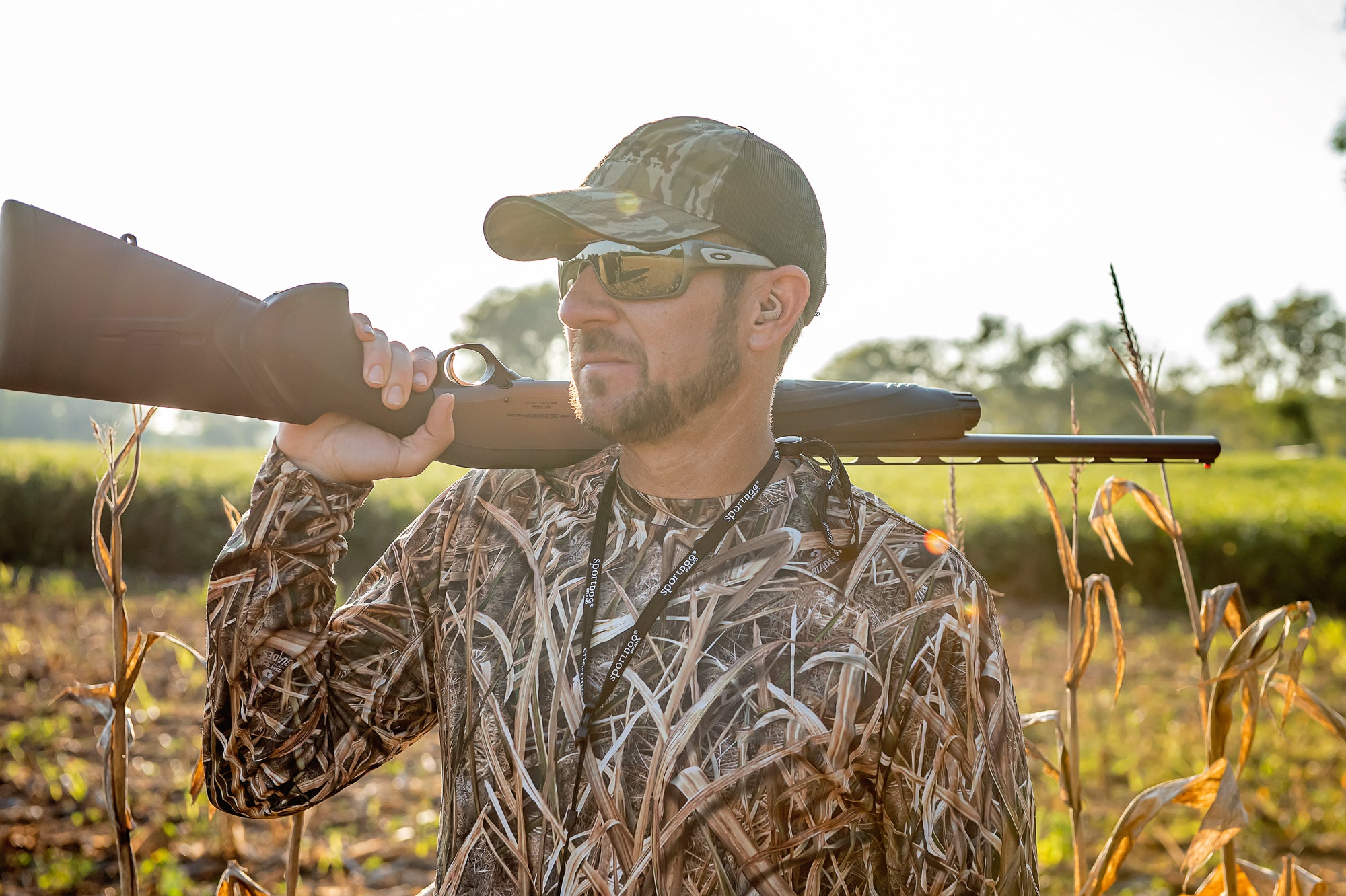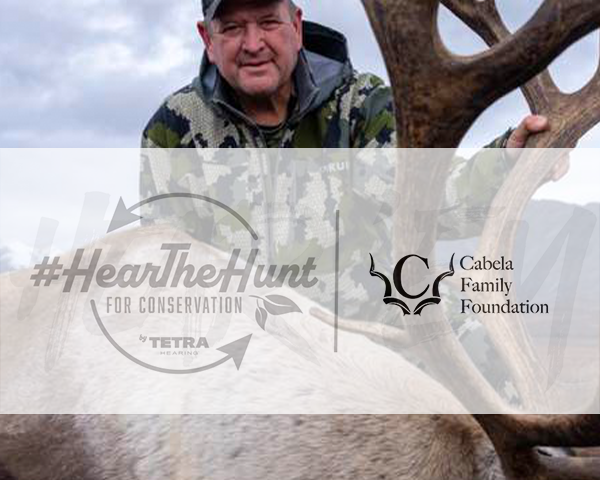Q&A with TETRA Founder Dr. David Gnewikow

Get to know one of TETRA Hearing™’s co-founders, Dr. David Gnewikow aka Doc G.
Q- Let’s start with the basics, tell us about your family.

Doc G - I’ve been married for 25 years to my first wife Melanie (she loves it when I call her that). We have two kids, Millie (19), a college freshman, and Dawson (16), a high school junior. I grew up in Virginia and came to Tennessee for college at Lipscomb University. That’s where I met Melanie. We got married right after I graduated, and she worked while I went to Vanderbilt University for my Master’s Degree and Ph.D. in Audiology.
Q- What made you decide to be an Audiologist?
Doc G - I grew up the son of an Audiologist. My Dad started his own practice in 1974 and is still practicing today. I was one of those very weird kids who knew what I wanted to do when I started college, and stayed the course through 11 years of higher education.
Q- Eleven years? Wow, and your wife worked to put you through school?
Doc G - Yes she did! I actually took a position as an Assistant Professor at Vanderbilt University School of Medicine that helped pay our bills the last few years of my Ph.D. program, but she truly supported us throughout my graduate and doctoral work. I found the Ph.D. program to be tough, but enjoyable. With limited classes the last few years, I had (or should I say took) a lot of time to hunt and fish. So much so that at one point, Melanie sat me down and gave me what I affectionately call the “State of the Marriage Address,” through which she informed me that I was to get off the lake, get in the lab, and finish my research so I could graduate and get a real job.
Q- Where did your career go after graduation?
Doc G - I stayed on at Vanderbilt for seven years as faculty, a clinic director and a clinical Audiologist. I taught several courses in the medical school, conducted and published hearing research, and saw patients daily. In 2007, with a bank loan and a lot of prayers, I left that secure gig to launch my own practice, Advanced Hearing Solutions in Mt. Juliet, TN. I have owned and operated that business since and still maintain a full caseload of hearing patients.
Q- So we know you love the outdoors, tell us about your hunting and fishing “career.”
Doc G - How long do we have? OK, I’ll try to keep it brief. I hunted and fished with my Dad since before I can remember. I have pictures of me in a dove field at age 3, fishing at age 2 and holding mallards that were about the same size as I was. When I went to college, I connected with several guys who loved to hunt, and we started bow hunting for deer and chasing ducks around Tennessee and Arkansas.

I soon caught the tournament fishing disease. I am competitive to an unhealthy degree, so competing at fishing just clicked with me. I have been very fortunate to have done well in bass tournaments at a regional level around Tennessee, Kentucky, and Alabama.
My passion is duck hunting. I could care less about shooting them, but calling, watching how ducks react, and getting them to go where I want them to go is what is so amazing to me about duck hunting. I work with my little lab, Bella, almost 365 days a year and can’t wait to get into the blind with her this fall.

Q- So how did TETRA come to life?
Doc G- Like most good ideas, TETRA started in duck pit. Bill and I were starring at a bunch of non-cooperative flight ducks and started talking about how we might help change the conversation around hearing and hunting. As Audiologists, we had seen what years of hunting and shooting had done to the hearing of our patients and the lives of their families. Yet, there were not great solutions that were easily accessible, comfortable, and effective for the average hunter. That started our quest to develop technology built around the needs of the hunter, not with the hunter as an after-thought.
My poor clinic staff have had to listen to so much duck calling as we measured the sounds of calling through the ear of the listener, but also inside the ear of the caller. This helped us gain a tremendous understanding of call acoustics and how that interacts with hearing protection. We tried so many different form factors in the hopes of finding a premium device that could be effective without having to have ear impressions. We finally did that with AlphaShield.
We also spent a lot of days hunting and at the range. Before you get too jealous, I spent a lot of my time this past fall in the blind wired to noise dosimetry equipment and adjusting digital parameters with a computer while everyone else shot limits. Bottom line is, TETRA is a result of the collision of mine and Dr. D’s passion for the outdoors and for hearing health care.
Q- What has been rewarding about the development and launch of TETRA and what were the biggest challenges?
Doc G- Wow. Rewarding… To see a project go from idea, to sketches on paper, to computer, to the lab, to the blind and to the consumer has been incredible. Probably the biggest reward has been hearing consumers say, “This is exactly what I’ve been waiting for,” or “This just sounds amazing! I’ve never been able to wear hearing protection while hunting before and now I don’t take it off!” Long term, I hope the reward will be seeing a much higher rate of use of hearing protection among hunters, and thus, better hearing among outdoors men and women.
Challenges… Well, I haven’t slept since 2018. This was my second round as an entrepreneur starting a company. It is not for the faint of heart. Starting a business is challenging but mostly it’s about learning new things, adapting, and surrounding yourself with good people. We could not have gotten this far without being surrounded by smart people, but more importantly good people. I’ll take good over smart any day.
Q- Last question, Many years from now, how do you want to be remembered?
Doc G- To go back to my Eagle Scout days- Trustworthy, Loyal, Helpful, Friendly, Courteous, Kind, Obedient, Cheerful, Thrifty, Brave, Clean, and Reverent. I am good at some of those, and not so good at others.
I want to be remembered, despite all my weaknesses, as being a man of God, a good husband, a loving father, and a trusted friend. Everything else takes a distant runner-up. I hope and pray that TETRA is the roaring success it promises to be. If so, I hope Dr. D and I are looked upon as having helped generations of hunters save their hearing. I guess that wouldn’t be too bad to be remembered for either.
1 comment



I’m curious as to whether this product can be used as a hearing aid as well without the negative effects of occlusion?